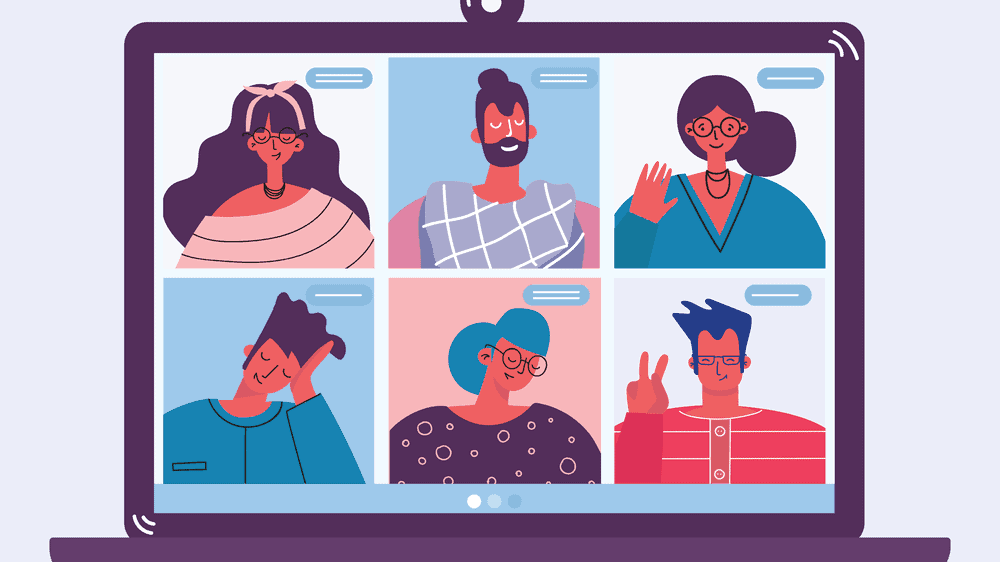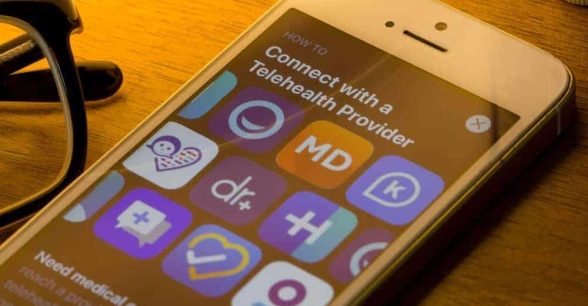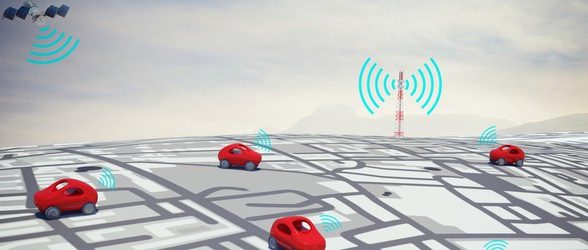On Zoom, No One Can See My Disability. It’s Changed How People Perceive Me.
Zoom turned out to be an equalizer of sorts. Everyone is enclosed in the same, small, pixelated box which only fits their head and maybe some shoulder. On Zoom, no one sees me in full. No one looks down at me because for once, we’re all on the same head level. No one glances awkwardly at me, trying not to stare, but wondering how I got here. The worst part of Zoom is meeting people in person after only seeing them in pixelation. I try to warn them.
“I’m short,” I say.
“I have short stature.”
“I’m four foot six.”
They nod, wave it off, say they can’t wait to meet.
Yet, in that first minute when I meet them, there’s always a pause. Their eyes scan me, as if they must be missing something. Sometimes, they glance over my shoulder as if expecting someone else. Then they let out a nervous chuckle.
Sometimes I get, “Wow, you really are short.”
As if they thought I was exaggerating.
I wasn’t who they expected, but they never skirt my expectations.
I pause. I smile. “Yes. I’m four foot six.”
If I just repeat facts maybe they will stop staring.
“I was born one pound.”
If I give them an explanation maybe they won’t ask any further questions.
Their eyes widen in surprise.
A doctor congratulates me on my existence.
I smile. I nod. It’s a useless compliment.
Before we all met in pixelated boxes, I always felt I had to justify myself and prove that I belonged. As a child, I was a walking talking vocabulary list, reading book after book. If I sounded smarter than my classmates, maybe they would believe I belonged. Maybe I wouldn’t accidentally be ushered into the kindergartener’s line only to protest all the way back to their classroom before they realized their mistake.
I stare too. I stare at other little people. I feel bad; I’m doing what other people do to me. But I don’t stare in a gawking way. I’m not trying to figure out how they got here or if they belong. I stare because my brain goes there, there, it’s someone like me. I stare in admiration. The other person doesn’t know my reason for staring. They probably assume I’m a nosy child.
Once, on the Boston Subway, a man started ragging on me for holding the metal pole and not the straps attached to the bar above. He said I was too close to his son. The train was crowded, normal for rush hour.
“I can’t reach the straps, sir,” I said. “I’m not touching your son.”
I made sure to keep as much distance as possible, but the train became more and more packed, and everyone was squished against each other.
“Just hold the freaking bar, lady.”
“I can’t reach the bar sir.”
His agitation grew. I started to get scared. Just as I thought he was going to grab my arm, a small woman elbowed her way through the crowd, her strong Boston accent booming over the crowd.
“Get your hands off of her.”
He jerked his arm back. The woman was about my height, maybe a bit shorter.
“The girl isn’t touching you, or your son.”
He mumbled something.
“You really should treat people better, we’re all on a packed train for God’s sake.” She led me back to where she was standing and made the people let me through.
“Thank you,” I said. My own tiny guardian angel.
She nodded. “Be careful, kid. You gotta’ stick up for yourself. Don’t let people push you around.” I admired the way that she commanded attention.
Usually when I fly, I let the TSA make their assumptions. Last year I flew to my grandpa’s funeral with my younger brother, two suitcases and two suits zipped in a garment bag. My brother was a minor. I was an adult. I had a passport, a driver’s license, and a birth certificate just in case.
I didn’t trust people to take me at my word.
All my brother had was his school ID. He was too young for a license and my mom didn’t want him to lose his passport. I spent the time in line nervously arranging my documents. My brother laughed at me, “You’re not going to need all that, you just need an ID.”
The TSA agent asked my brother for the paperwork.
“He’s the minor, I’m an adult,” I explained.
My brother was a foot and a half taller than I was.
The TSA agent laughed.
I stared, straight face, not even a hint of a smile.
He sighed, “ID?”
I handed him my passport.
He flipped it around, stared at me, and called his buddy over. They both stared at the passport. They chuckled to each other.
“Do you need further identification?”
“Is this really yours?” they asked.
I threw my license and birth certificate at him.
They both stared at it, as if checking its authenticity.
“Do we have a problem?” I asked as they smirked at each other.
I was a freak show in the middle of a crowded Boston airport.
Finally, they let us through, telling me it’s always good to double check.
I wasn’t in the mood. I stuffed my IDs back in my bag.
“You see that?” I said to my brother.
“Yeah. So that’s why you bring three different forms of ID.”
I nod. “Sorry, guess you’re right.”
After a Lyft driver threatened to call the police on me because he thought my ID was fake, my dad taught me to be prepared. Always stand up for yourself, he said. Threaten legal action if necessary, that scares people. I doubt he ever had that conversation with my brother. It wasn’t necessary.
In the past ten or so months, since we’ve all been on Zoom, my right to be in a space hasn’t been questioned. No one’s stared at me over a computer, trying to figure out how or why I am as short as I am. In our pixelated pandemic world, I appear “normal”. Before video calls became the norm, I wondered if this was all in my head. Maybe, people really don’t notice my height. Maybe, it’s not such a big deal.
But people do notice my height. That’s never going to change. I don’t blend into a crowd or slip unnoticed into a room. I elicit stares and once-overs. I can hear the gears turning in people’s heads. But in this new existence, I’m finally an equal. In these unusual times when nothing is normal, I appear to be “normal.” From the shoulders up, I don’t need to prove myself. However, the “normal” version of me is just the illusion of a small, pixelated box in a virtual world.
About Rooted In Rights
Rooted in Rights exists to amplify the perspectives of the disability community. Blog posts and storyteller videos that we publish and content we re-share on social media do not necessarily reflect the opinions or values of Rooted in Rights nor indicate an endorsement of a program or service by Rooted in Rights. We respect and aim to reflect the diversity of opinions and experiences of the disability community. Rooted in Rights seeks to highlight discussions, not direct them. Learn more about Rooted In Rights



